Looking for a place to live in Singapore? This guide will help you understand what to expect, where to look, how much it’ll cost, and how to avoid pitfalls. Rent in Singapore is expensive, and prices vary depending on accommodation size and location. So be prepared to hunt around if you’re on a budget. Read on to find the answers to the most asked questions, from a neighborhood guide to navigating leases and agents.
Advertisement
Jump right in:
Advertisement
Why you'll love InterNations in Singapore
and countless possibilities for fun and friendship!
Advertisement
Advertisement
How much is rent in Singapore?
According to the Numbeo Rental Price Index, Singapore is the most expensive city to rent in the world. This is partly because Singaporeans have a culture of buying apartments. Most young people live with their parents until they can afford to purchase their own place. Thus, the rental market is often for foreigners.
As of 2025, the average price for renting a one-bedroom apartment outside the city center is 3,000 SGD (2,300 USD). For a three-bedroom apartment outside the city center the cost can go higher than 4,700 SGD (3,600 USD). If you are a family looking for a 3-bed condo close to the city center, expect to pay upwards of 8,000 SGD (6,100 USD) per month.
In central or high-demand areas like Orchard or Marina Bay, prices may even exceed these prices. There are also slight seasonal fluctuations in rent, as prices tend to increase between July and September. For cheaper rent, permanent residents who pay into the Central Provident Fund (CPF) have access to subsidized prices via the Housing and Development Board (HDB). This can make a real difference in monthly rent prices. For example, a standard three-bedroom HDB apartment is about 3,000 SGD (2,200 USD) per month.
Where should I live in Singapore?
Different neighborhoods in Singapore cater to different preferences and lifestyles. The Central Area is ideal for those who want to be at the heart of the action (shopping, dining, and entertainment). But you’ll have to factor in higher rent prices. For those looking for a laid-back vibe with a mix of expat and local communities, the East Coast is for you. Meanwhile, Holland Village and Sentosa areas offer luxury living, with high-end apartments and international dining options.
Click here for a thorough overview of Singapore districts.
How to find a house or apartment for rent?
For most expats relocating to Singapore, renting private housing is the most realistic option. Landed houses and condos offer a good lifestyle along with comfortable housing. A popular option for expats looking for a short-term rental is serviced apartments for rent on a short-term lease. They’re a great way to check out an area before you sign a long-term lease of a year or more. Renting like this also offers you some stability whilst you find your ideal home, which could take a few months. Hiring an agent is a good option to help navigate the process. They’ll find accommodation according to your needs and even manage negotiations on your behalf.
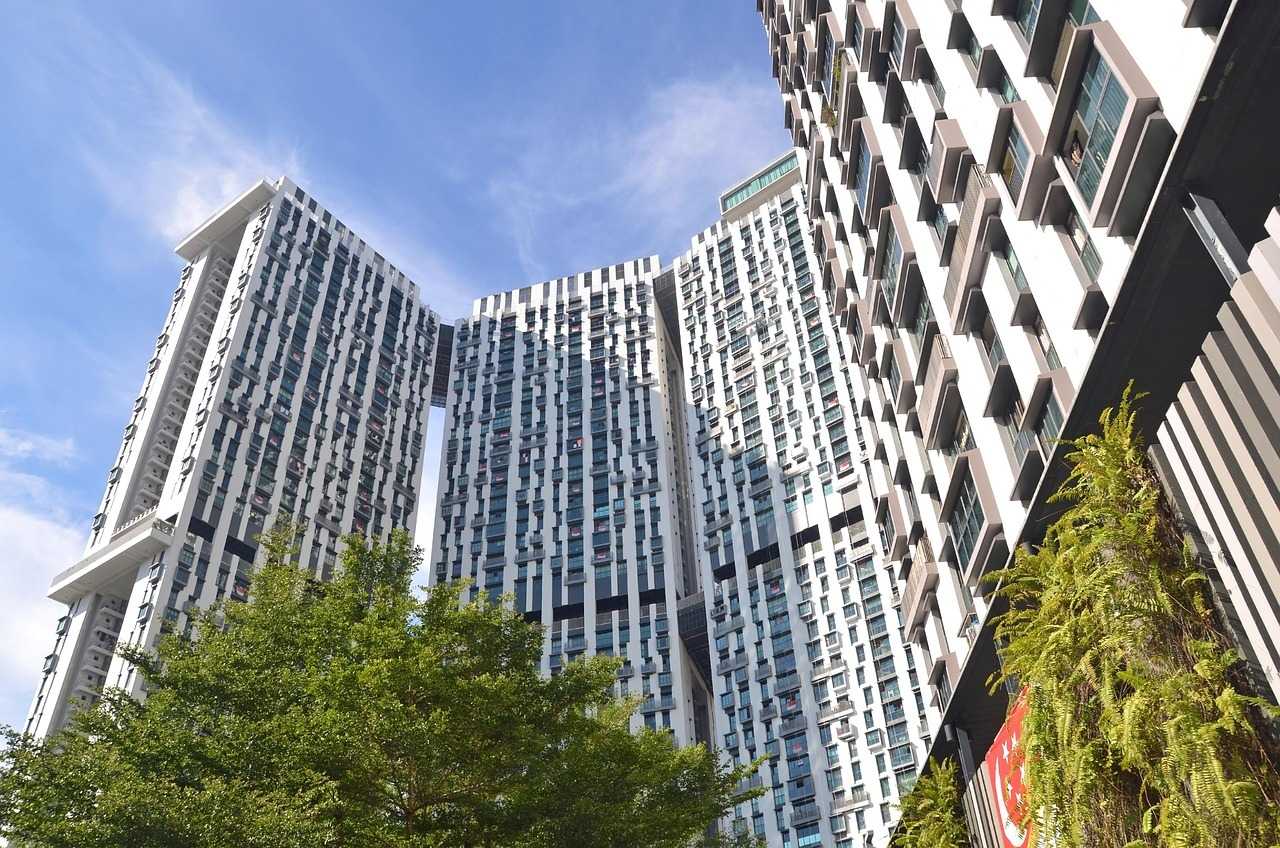
Short-term rental websites: Hmlet VRBO Nestpick Commontown
Other rental websites: Propertyguru 99.co SRX
Which documents do I need to rent?
If you’re staying in a hotel or serviced apartment, you’ll present your passport upon check-in. If you are renting short-term from a private landlord, you’ll sign a tenancy agreement. For this you’ll need:
- Photocopy of your passport;
- Photocopy of your employment pass;
- Good faith deposit (typically equal to one month rent);
- Letter of intent;
Note that to legally rent as a non-resident in Singapore, you must have an employment, student, or dependent pass valid for at least six months. Tourists aren’t allowed to sign as tenants. Engaging an agent to process these documents can be helpful as they can provide your letter of intent and check the tenancy agreement.
Things to know before renting
Hot weather: Most expats want to live close to a metro station simply because walking around in summer (or taking the bus) can be very uncomfortable.
5-year-rule: Singapore citizens can’t rent their HBD flat for five years after they’ve purchased it. It’s a good idea to check for evidence that your landlord has owned or lived in the flat for at least five years. If they are found to be illegally renting out their property, any tenants will be evicted.
Rental allowance: Private property owners can rent out their properties whenever they want. HDB owners can only sublet rooms in flats that are three bedrooms or bigger. To rent the whole property out, they must have occupied the flat for more than five years.
No more than six: The maximum number of unrelated tenants allowed to rent at the same time in any private property is six.
Subsidized housing only for residents: Non-residents don’t have access to subsidized housing. Only permanent residents paying into the CPF can get cheap accommodation through the HDB.
Proof of address: It’s difficult to establish proof of address with temporary rentals.
Legalities: In Singapore, renting private residential properties (like condominiums) for periods shorter than three months is illegal. For HDB flats (public housing), the minimum rental period is six months. The safest legal option for short-term accommodation is to book a stay in a licensed serviced apartment.
Renting furnished or unfurnished?
For most expats, a partly furnished condo is the best option. In this case, large appliances like fridges and microwaves usually come with the apartment but you’ll need to buy furniture. Fully furnished properties are also available to rent. In addition to furniture, they often include all big appliances, like a fridge, oven, and television. Keep in mind that fully furnished rooms and properties cost more than unfurnished.
How to prepare the letter of intent?
Once you’ve viewed the property and negotiated a price, contract period, and deposit, you’ll need to organize a letter of intent. An estate agent can help with drafting it. But here’s an example template
A letter of intent must include the following information:
-
Diplomatic or repatriate clause: This is important for expats because it gives you a “get-out-of-jail-free card” if you become unemployed or are transferred to another country. Generally, this clause lets you give two months’ notice to break the lease after you’ve lived in the property for a year.
-
“Good faith” deposit: Once this is paid, the landlord will take the property off the rental market. The deposit is usually equal to one month’s rent. It’ll either become part of the security deposit or your first month’s rent after the tenancy agreement is signed.
Security deposit: This is usually the equivalent of one month’s rent for every year that you’re leasing the property. You’ll pay it once the tenancy agreement is signed, and it’s refunded once your tenancy ends — as long as you haven’t damaged the property or broken the terms of the tenancy agreement.
Terms of lease: These terms outline how long you’ll lease the property for, whether there’s an option to renew the lease (and how long for), and the notice necessary before moving out.
There may be additional items in the letter of intent depending on the specific property. This includes whether the accommodation will be furnished or not, and any stipulations related to those items. Once the letter is finalized, both parties can sign the tenancy agreement.
Rental contracts and deposits
Rental contracts should include all details mentioned in the letter of intent, as well as the option to renew. They should also state who’s responsible for repairs and utilities, And both sides should agree on an inventory list upon the tenant’s move-in date. Fees to pay at the signing of the contract include your first month’s rent, which is sometimes taken from your good faith deposit or agent commission (usually half a month’s rent for a one-year lease and a full month’s rent for a two-year lease).
Additional fees
- Security deposit: 1 month’s rent for a 1-year lease or 2 months’ rent for a 2-year lease.
- Advance rent: Typically, 1 month’s rent payable upfront regardless of lease length.
- Agent commission: Usually half a month’s rent for a 1-year lease, and one month’s rent for a 2-year lease.
- Stamp duty: 0.4% of the total rent for leases up to 4 years; for leases longer than 4 years, 0.4% of four times the average annual rent.
Utilities and bill payments
Utilities and maintenance fees are the tenant’s responsibility. At a glance:
- When renting you’ll be expected to pay for internet, electricity, and water. If your household uses gas, you’ll also have to pay for this.
- You can pay utilities through one company, the SP Group. You can also shop around for good deals for electricity and gas suppliers.
- Singapore doesn’t have a TV license fee.
For the environmentally conscious expats, natural gas is the top fuel provider for Singapore. This is considered the cleanest form of fossil fuel. Unfortunately, there’s limited access to renewable resources.
To open a utilities account in Singapore, expats need to provide:
- A completed and signed application form for utilities accounts;
- A copy of their NRIC or employment pass;
- Proof you’re occupying the premises, such as a housing contract.
Gas
Rather than paying everything through the government-owned SP Group (formerly Singapore Power), expats have ten suppliers to choose from.
Five Biggest Gas Suppliers
- Keppel Gas
- SembCorp Gas
- [Union Gas](Union Gas Holdings LimitedUnion Gas Holdingshttps://www.uniongas.com.sg)
- [Pavilion Energy](Pavilion Energy: HomePavilion Energyhttps://www.pavilionenergy.com)
- [City Gas](Piped Town Gas and Lower-carbon Energy SolutionsCity Energyhttps://www.cityenergy.com.sg)
Electricity
Formerly the only electricity provider in Singapore, SP Group is still a viable option — but consumers, including expats, can now explore a range of plans from various licensed retailers through the Open Electricity Market (OEM). If you stay with SP Group as your electricity retailer, you'll be billed monthly based on the regulated tariff, which is reviewed every quarter. As of April–June 2025, the regulated tariff is 28.12 cents per kWh (before GST). To compare current plans, visit the official OEM comparison tool
Biggest Electricity Retailers (OEM):
- [Geneco](Geneco Singapore | Leading Electricity Provider & ServicesGenecohttps://www.geneco.sg)
- [Diamond Electric](Diamond Electric - Singaporediamond-electric.com.sghttps://www.diamond-electric.com.sg)
- [Keppel Electric](Keppel Electric: Singapore's first home grown ...Keppel Electrichttps://www.keppelelectric.com)
- [Pacific Light](PacificLight | Electricity Retailer in SingaporePacificLighthttps://www.pacificlight.com.sg)
- OHM
Water
Water bills are managed through the SP Group. There’s a regulated price for water that reflects the cost of Singapore’s advanced and integrated water system, given that the island has few natural water sources. Water prices are reviewed periodically.
Estimated Monthly Water Bills
| Type of Apartment | Monthly Cost |
HDB 1-bedroom without gas | 29 SGD (22 USD) |
HDB 3-bedroom without gas | 40 SGD (30 USD) |
Larger apartment or private condo without gas | 57 SGD (44 USD) |
Internet contracts
Generally, non-residents must be over 18 years old and have an employment pass or work permit valid for at least six months to get a broadband contract. Some companies, such as Singtel, ask for a validity period of at least 12 months.
Some of the biggest broadband providers are:
- Whizcomms;
- M1;
- StarHub;
- Singtel;
- ViewQwest;
- MyRepublic Broadband.
What to keep in mind about utilities
- It’s necessary to pay an initial security deposit when you open a utilities account in Singapore. This deposit can be used to pay the final bill when your contract is cancelled or will be sent back to you as a refund.
- The deposit is based on the size of your home and whether you’re a permanent resident. Non-resident expats pay double compared to permanent residents, though you should have access to the same rates.
- Customers who pay with Giro direct debit also pay a smaller deposit, regardless of their residency status.
Buying property in Singapore
Buying a house in Singapore is different for residents and non-residents, which we go into below. Generally, there are restrictions in place for non-residents, including having to pay an additional buyer’s stamp duty. There’s some good news, though: non-residents can easily apply for a mortgage.
How to buy property as a permanent resident?
The cheapest housing option in Singapore is usually Housing and Development Board (HDB) flats. However, only Singaporean citizens and, in some cases, permanent residents are eligible to purchase them. Foreigners that aren’t permanent residents are generally not allowed to buy HDB flats. To be eligible to purchase an HDB flat, buyers must meet the following conditions:
- Be a Singapore citizen or a permanent resident purchasing with another citizen under specific schemes;
- Be over the age of 21 if buying with a spouse, parents, or children under your legal custody;
- Be over the age of 21 if widowed or orphaned;
- Be over the age of 35 if applying as a single;
- Be able to physically occupy the flat for a Minimum Occupation Period (MOP) of five years before renting out the unit.
To buy HDB property on the resale market, you have to be a Singaporean resident. To buy directly from HDB, permanent residents must purchase the property with an accompanying Singaporean citizen.
Step 1: Check for eligibility
Check if you’re eligible or if you need to purchase with a Singaporean citizen. You can contact the HDB through the following: Email: [email protected]
Step 2: Register on the HDB Portal
If you’re eligible, you need to register on the HDB Resale Portal. It will guide you through the necessary steps and documentation.
Step 3: Gain an Option to Purchase (OTP)
Sites to search include ohmyhome and property guru. You can check the prices of HDB properties in specific areas on the HDB Website.
Step 4: Get a housing loan
As a permanent resident, banks offer loans of up to 75% of the purchase price or property valuation, whichever is lower. You’ll need to fund the remaining amount through your Central Provident Fund (CPF) Ordinary Account savings (if eligible) or in cash. You’ll be required to provide the following documents:
- Three most recent pay slips;
- Two most recent years’ income tax assessment notices (Notice of Assessment);
- Your Singapore PR Identity Card (Blue NRIC) and passport;
- Signed Option to Purchase (OTP) agreement;
- Official valuation report of the property;
- HDB confirmation page (only if purchasing an HDB flat).
It’s worth speaking directly with a bank advisor to find the best option for you.
Step 5: Pay associated fees
If you’re a permanent resident buying your first residential property without a Singaporean citizen as a co-buyer, you’ll have to pay both the Buyer’s Stamp Duty (BSD) and the Additional Buyer’s Stamp Duty (ABSD). The ABSD rate for permanent residents is 5%.
If you’re purchasing a property with a Singaporean citizen, you may be eligible to apply for an ABSD remission through the Inland Revenue Authority of Singapore (IRAS).
How to buy property as a non-resident?
Non-residents can buy the following properties:
- Condominium developments created under the Planning Act;
- Apartment in a private housing building over six stories high, including the ground level;
- Leasehold in a restricted residential property for under seven years.
As a foreigner, you can’t buy vacant land, and you’ll struggle to buy landed property. On the other hand, there are no limits on foreigners buying private non-landed properties. If you have the financial means to buy, you can own multiple condominiums. The minimum age for buying private property is 21.
One thing to take a note of is the hefty stamp duty paid by foreigners. You’ll also need to apply at the Singapore Land Authority for permission to buy the property.
Step 1: Find your property
You can search online or engage estate agents to find a property. Most agents use the same property database; so it’s worth working with only one at a time. It’s important to inspect the property first and negotiate the prices based on average prices for your area.
Step 2: Get an Option to Purchase (OTP)
This means paying 1% of the purchase price to make sure the seller isn’t able to sell the property for two weeks. At this stage, you should engage a lawyer.
Step 3: Get a loan
Many banks offer home loans to foreigners, including:
- DBS;
- Standard Chartered;
- HSBC;
- Citibank;
- Bank of China.
You’ll need the following documentation:
- Three pay slips (most recent);
- Two annual income tax assessments (most recent);
- Your passport.
If you already have an OTP, the bank will also need:
- Your signed OTP;
- Official valuation report.
Step 4: Complete the purchase:
This can include paying an option exercise fee of 4% of the property price (including your OTP) and the down payment. At completion, you’ll have to pay any legal fees as well as a BSD and ABSD, which is an additional 20% of the property price.
Residents of the US, Norway, Switzerland, Iceland, and Liechtenstein are exempt from paying ABSD due to free-trade agreements.
Can you buy a house in Singapore and get citizenship?
If you’re a permanent resident in Singapore, you can become a citizen after living in the country for two years. This can be achieved whether you own property or not. Singapore has no options for becoming a citizen through property investment only. You also can’t buy a house in Singapore to get a visa.
House prices in Singapore
As of early 2025, the average price for a condominium in Singapore is approximately 1.99 million SGD (~1.47 million USD), with the average price per square foot at around 1,972 SGD (approximately 1,460 USD).
Some of the most expensive areas to buy property include City and Southwest (District 1–8); Orchard/Tanglin (District 9–10); and West (District 22–24).
Property prices remain high and are projected to stay elevated through the coming years due to limited land supply, strong demand, and Singapore’s position as a global financial hub.
Types of property in Singapore
Condominiums: The most popular housing choice for expats in Singapore is condominiums. They are often built in private estates with parking, swimming pools, playgrounds, gyms, and sometimes tennis courts and indoor sports grounds.
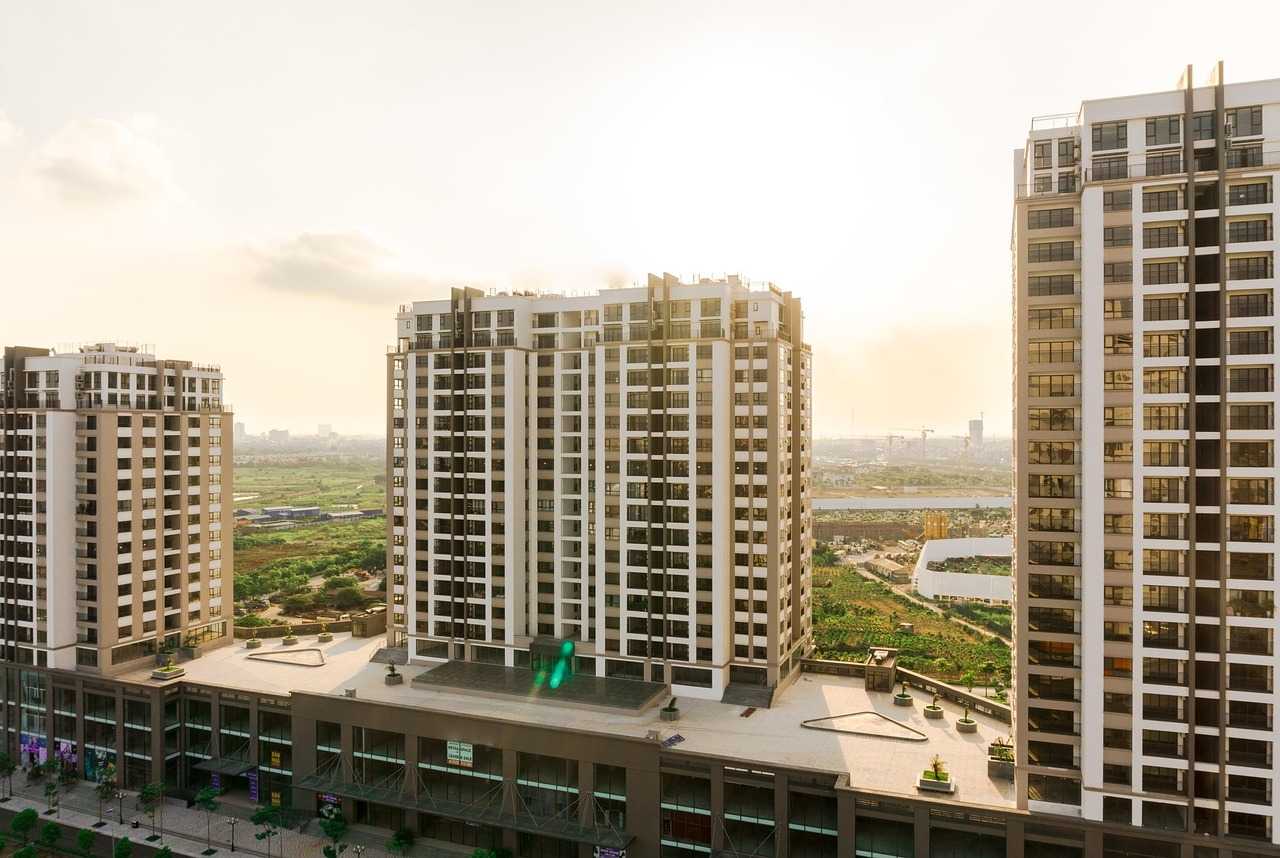
Landed property: Detached properties with land attached are popular for expats who want a house and a garden. These are the most expensive properties and are favored by those who want more privacy.
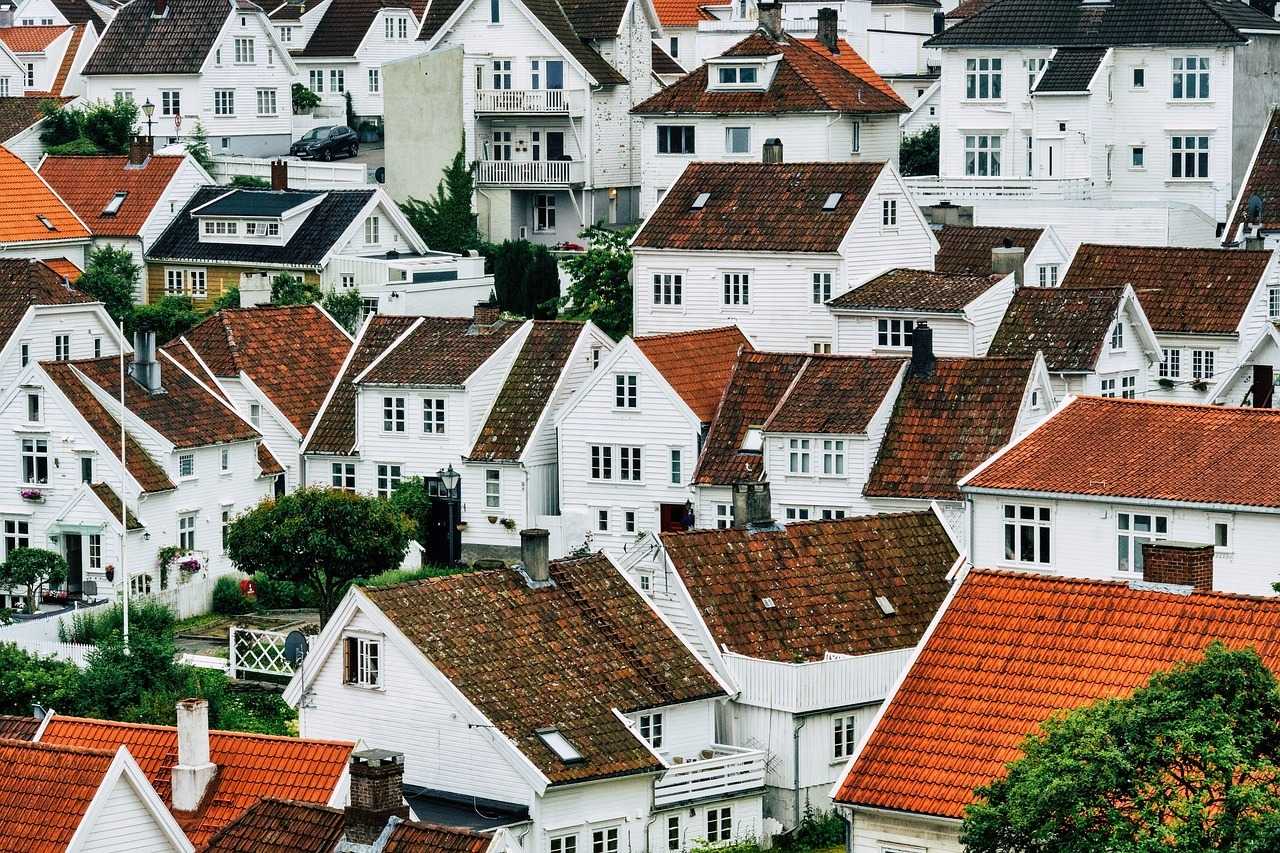
Non-landed: Properties without a land title, but still with development rights. This includes condominiums, apartments, and other residential structures that are strata-titled (i.e., owners own a specific unit within a building and share the common areas).
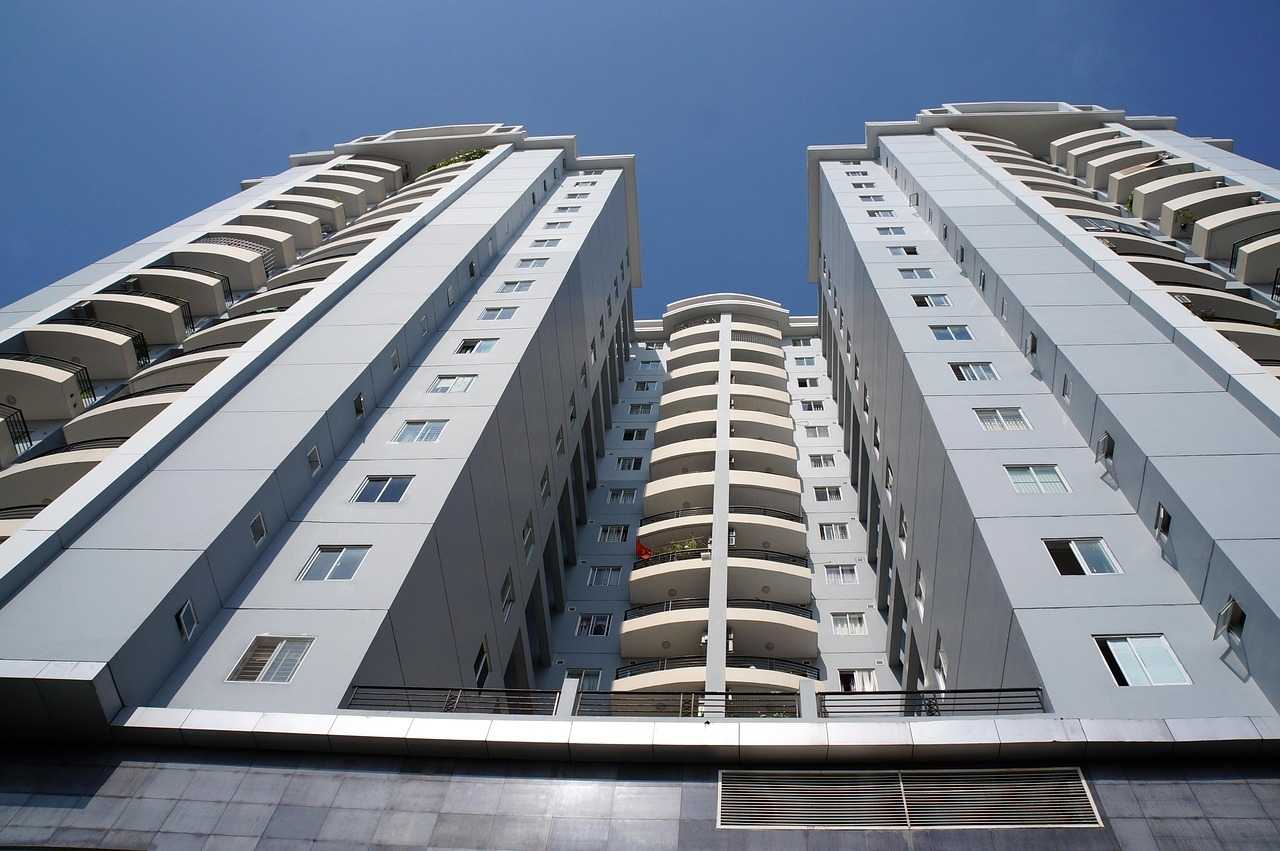
HDB housing: The Housing and Development Board of Singapore (HDB) manages buildings that are available to purchase at a subsidized rate for Singapore citizens and permanent residents. They are available in all sizes, from studios to five-bedroom apartments.
Larger flats are available, including “3Gen Flats,” which are meant for multiple generations living in the same accommodation. There are also executive (larger) apartments and Design, Build, and Sell Scheme (DBSS) apartments for property developers.
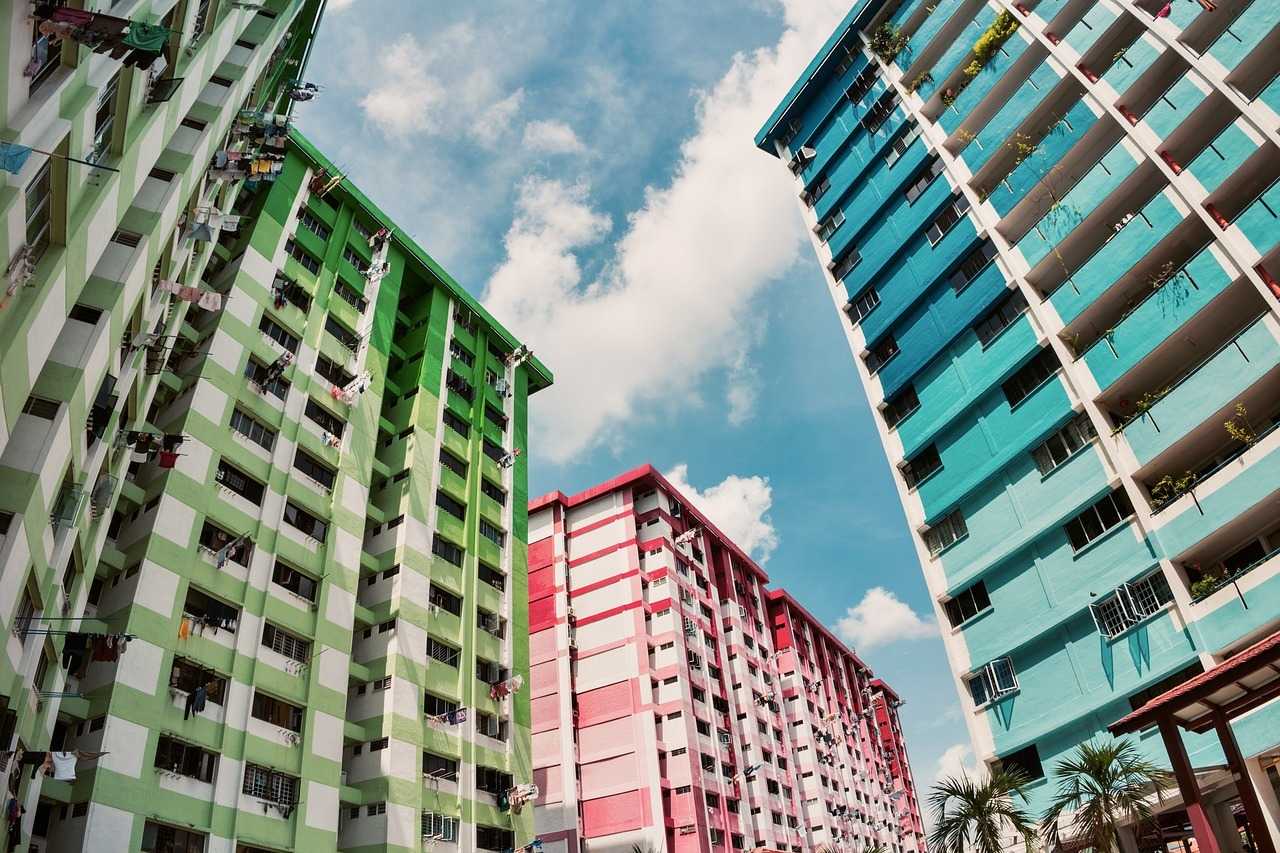
Public/private hybrids: This type of housing is a step up from HDB residences and aimed at young professionals who are unable to afford private housing. Non-residents can only purchase this type of housing ten years after it’s been completed. After ten years, the property is considered “fully privatized”.
Advertisement
Join Our Exciting Events in Singapore
Looking to make the most of your expat life in Singapore? Whether you’re new to the island or have been here for a while, our InterNations events offer a fantastic opportunity to meet like-minded people, expand your social circle, and discover the best the city has to offer. From casual meetups to themed events, we cater to all types of interests and hobbies. It’s not just about networking — it’s about building lasting friendships, exploring new experiences, and feeling truly at home in Singapore.
Don’t miss out. Check out our events today!




Advertisement
Our Global Partners
Advertisement







